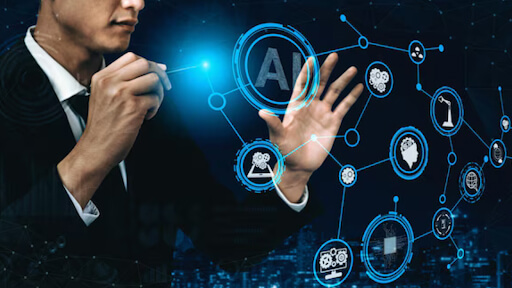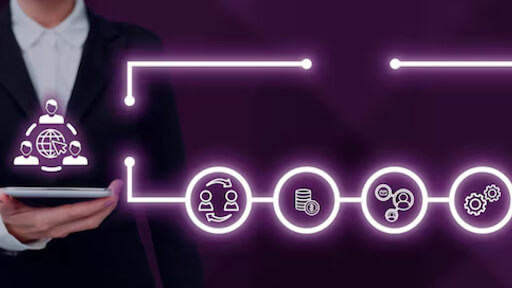 1-800-805-5783
1-800-805-5783 
Introduction
Human Capital Management (HCM) is at the heart of organizational success, aligning workforce capabilities with strategic goals to drive productivity, innovation, and employee satisfaction. However, modern-day HCM faces unprecedented challenges—from navigating diverse, global talent pools to ensuring employee engagement in an increasingly digital workplace.
Artificial Intelligence (AI) offers transformative potential across HCM functions. By automating routine tasks, improving decision-making through data insights, and enhancing employee experiences, AI is poised to become a critical tool for HCM leaders. This paper explores how AI augments HCM, its applications across HR processes, and how organizations can ethically leverage AI to build a resilient, future-ready workforce.
The rapid evolution of work has exposed several challenges in HCM, including:
AI’s Role: By automating data processing and providing predictive insights, AI helps HR leaders overcome these barriers, allowing for more strategic focus on employee engagement, talent development, and culture-building.

Artificial Intelligence has introduced powerful tools and techniques that address these challenges head-on. Key AI technologies in HCM include:
AI-driven HCM empowers organizations to save time and resources and create more personalized, meaningful employee experiences.

AI simplifies recruitment by identifying top candidates more accurately and efficiently. AI-powered platforms can analyze candidate resumes, match skills with job requirements, and eliminate biases from the hiring process, increasing diversity and fairness in recruitment outcomes.
Automated onboarding systems use AI to deliver personalized training programs, track employee progress, and provide real-time support. By creating a welcoming, efficient onboarding experience, AI helps new hires feel integrated and productive from day one.
AI tools monitor employee sentiment, analyze engagement trends, and provide real-time feedback, enabling HR to respond proactively to engagement issues. For example, sentiment analysis through NLP identifies areas where employees may feel disconnected, allowing HR to address these concerns swiftly.
AI can enhance performance management by generating data-backed insights into employee achievements, skill gaps, and growth opportunities. Predictive analytics enables managers to foresee potential performance issues and guide employees toward more targeted development pathways.
AI analyzes individual performance data to suggest tailored employee training modules, promoting continuous learning and skill development. This personalized approach aligns with employee aspirations and organizational needs, fostering a culture of growth and innovation. Employee Perception and Trust: Employees might feel uneasy about AI monitoring their performance or engagement. Open communication about AI’s role, benefits, and feedback channels can mitigate concerns and encourage acceptance.

To successfully adopt AI in Human Capital Management (HCM), organizations should prioritize a thoughtful approach that balances innovation with ethical, efficient, and human-centered practices. Here’s how:
By approaching AI adoption with ethics, security, efficiency, and human-centered practices in mind, organizations can harness the full potential of AI to transform HCM. This ensures a positive, trusted relationship between employees and AI, fostering a productive and engaged workforce.